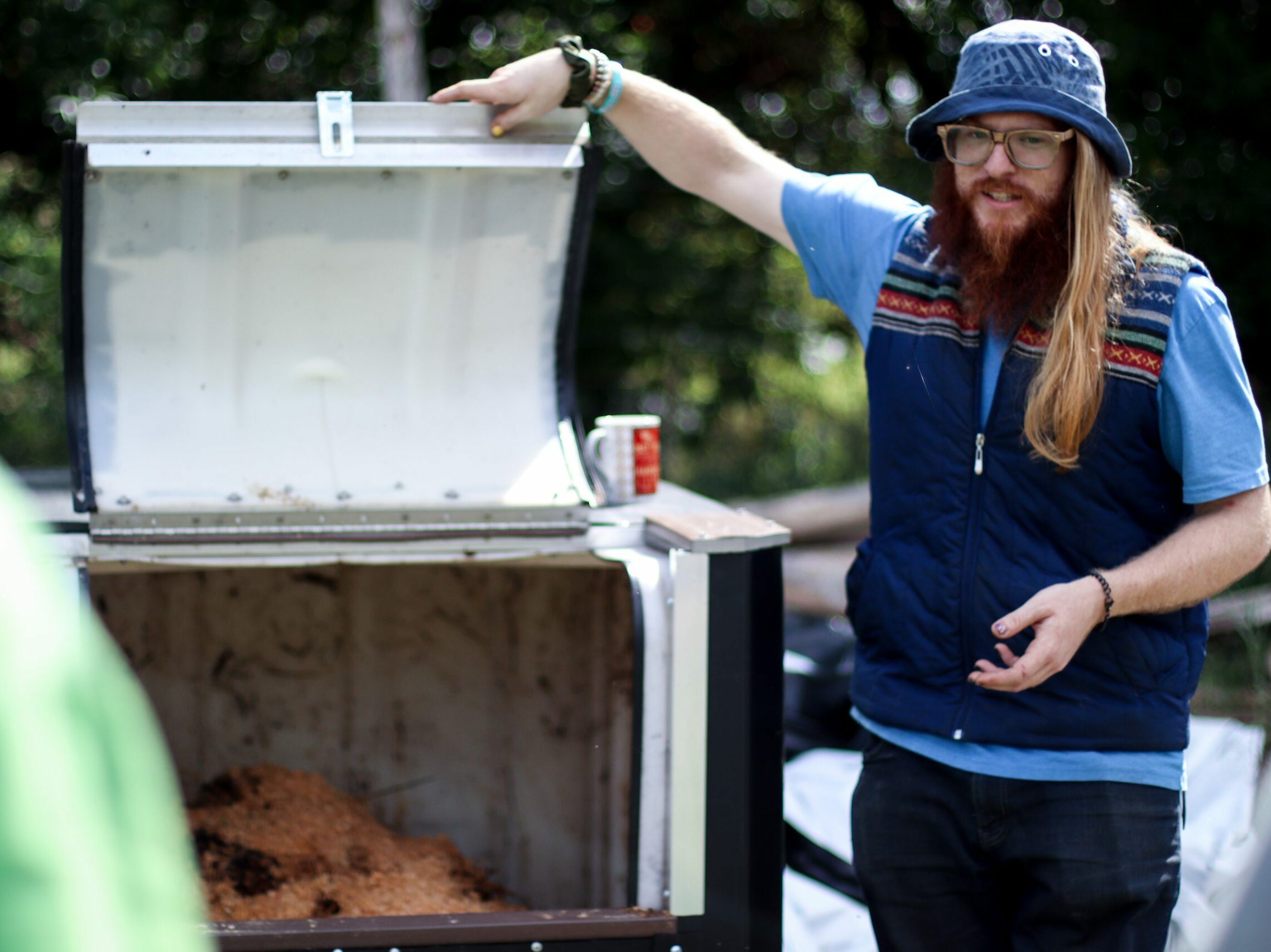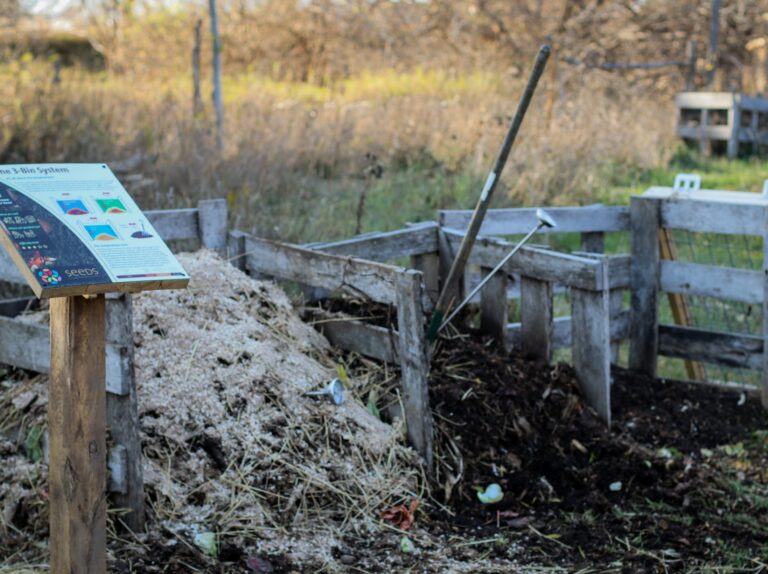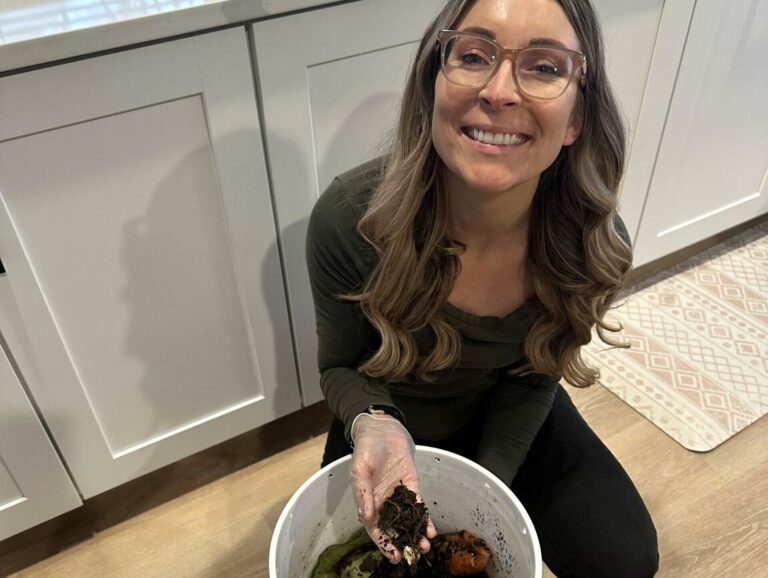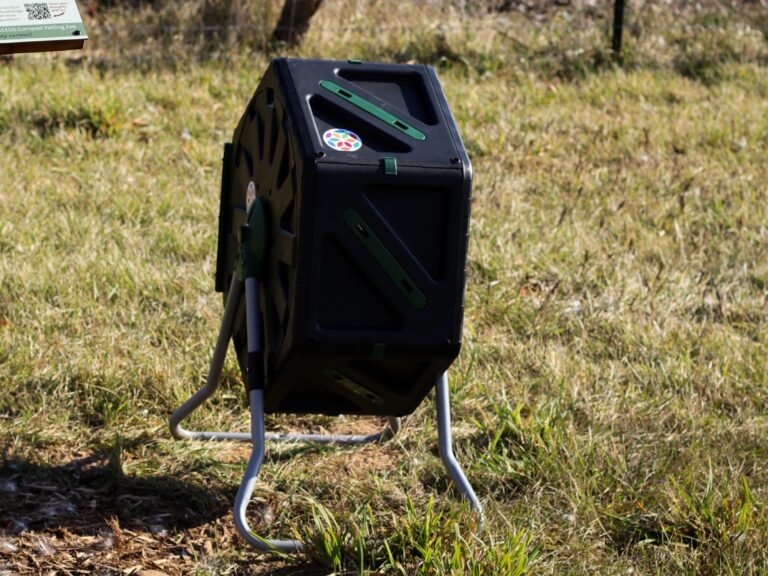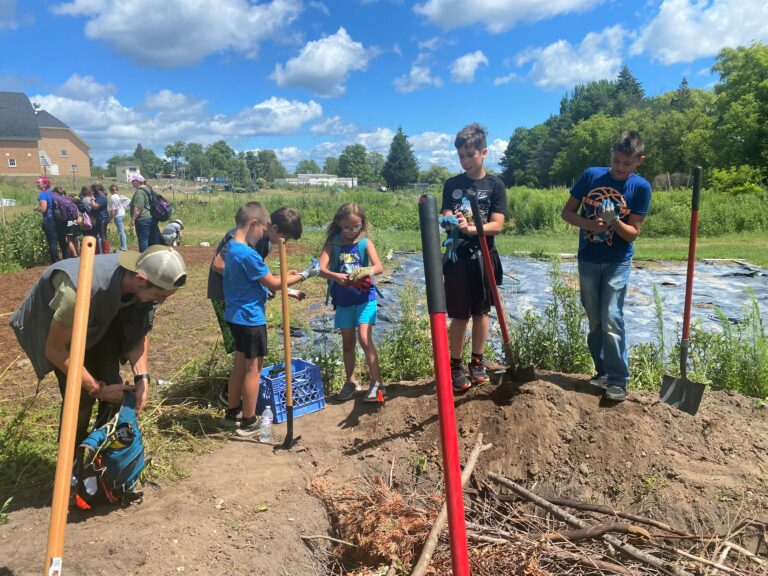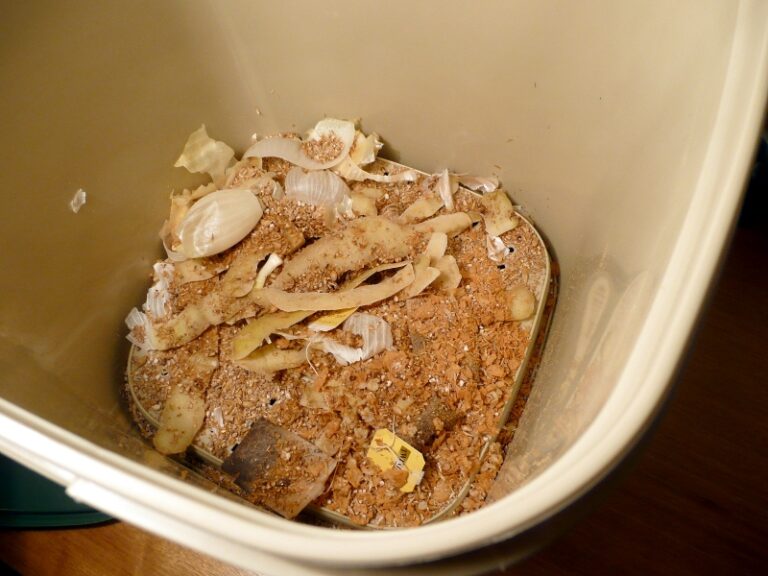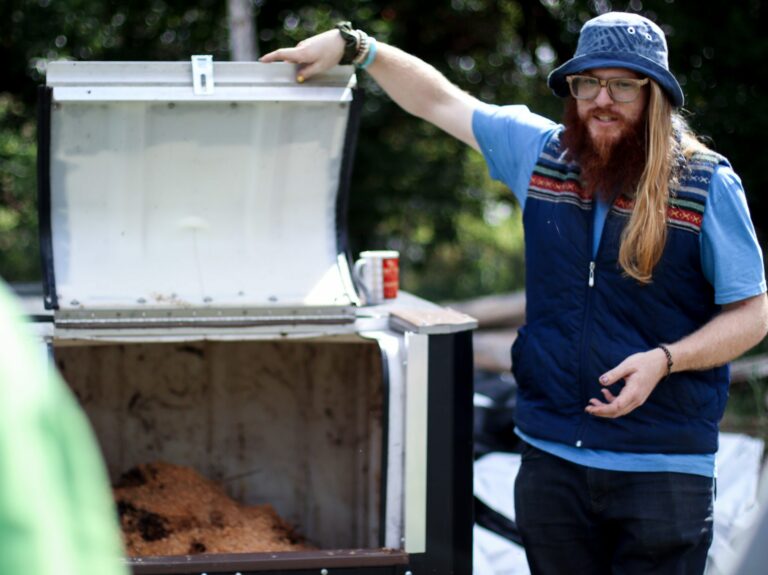Compost Petting Zoo
A one-of-a-kind training & demonstration facility in Traverse City
The SEEDS Compost Petting Zoo features 8 different composting systems from small-scale home composters to industrial-sized systems for farming. Visitors can learn about how each system works and see it in action. Visits can be self-guided or scheduled. Check out our upcoming classes for a deeper dive into the world of composting!
Hours: 9am-7pm
Address: The SEEDS Farm at Historic Barns Park, 1500 Red Dr, Traverse City, MI 49684
Upcoming Events
Meet the systems
3-Bin System
The 3-bin system is one of the most traditional and common compost systems. Each bin is used to contain a different stage of the composting process. The process of moving the contents into different bins also helps mix the material and ensure air flow.
Worm Bin
If you like caring for animals, this system may be for you! Maintenance is straightforward. These worms are like a pet and need you to provide good ventilation, constant humidity and moisture, regular feeding, and temperatures between 55 to 75 F.
Tumbler
Tumbler systems can be found at many garden centers. They can be as simple as a large, closable container that is rolled around on the ground. Turning the container mixes contents and introduces oxygen.
The Johnson Su Bioreactor
The Johnson Su Bioreactor takes advantage of the fact that oxygen can penetrate 12 inches into a pile. With this donut-shape design, air flows through the middle, maintaining an aerobic state in a static pile without any mixing or turning!
Hügelkultur
Hügelkultur mounds utilize logs and branches with compost and precomposted materials filling in the gaps and covering the mound. As the wood decomposes over several years, it will absorb water like a sponge, holding onto moisture for a long period of time.
Bokashi
Bokashi stands out as an anaerobic fermentation system for decomposition. Microbes that thrive without oxygen are mixed in with food scraps, then sealed in a container with a drainage spigot. These microorganisms can process all your food scraps including cooked meats, cheeses, citrus, even bones and shells!
In-Vessel System
This miniature enclosed system is pumping air through its contents to ensure proper oxygen levels and no bad smells. Larger in-vessel systems are often used in dense campuses to process food scraps (mixed with browns, of course) and can also handle compostable plates and utensils!
The Continuous Flow Tunnel (CFT)
This large-scale vermicomposter makes collecting worm castings very efficient. Aa cutting bar harvests the bottom three inches of worm castings without disturbing the worms. This vessel contains approximately 40,000 worms that can eat 20 pounds of feedstock per week, even including some meat and dairy!
From Table back to Farm: More stories of composting!
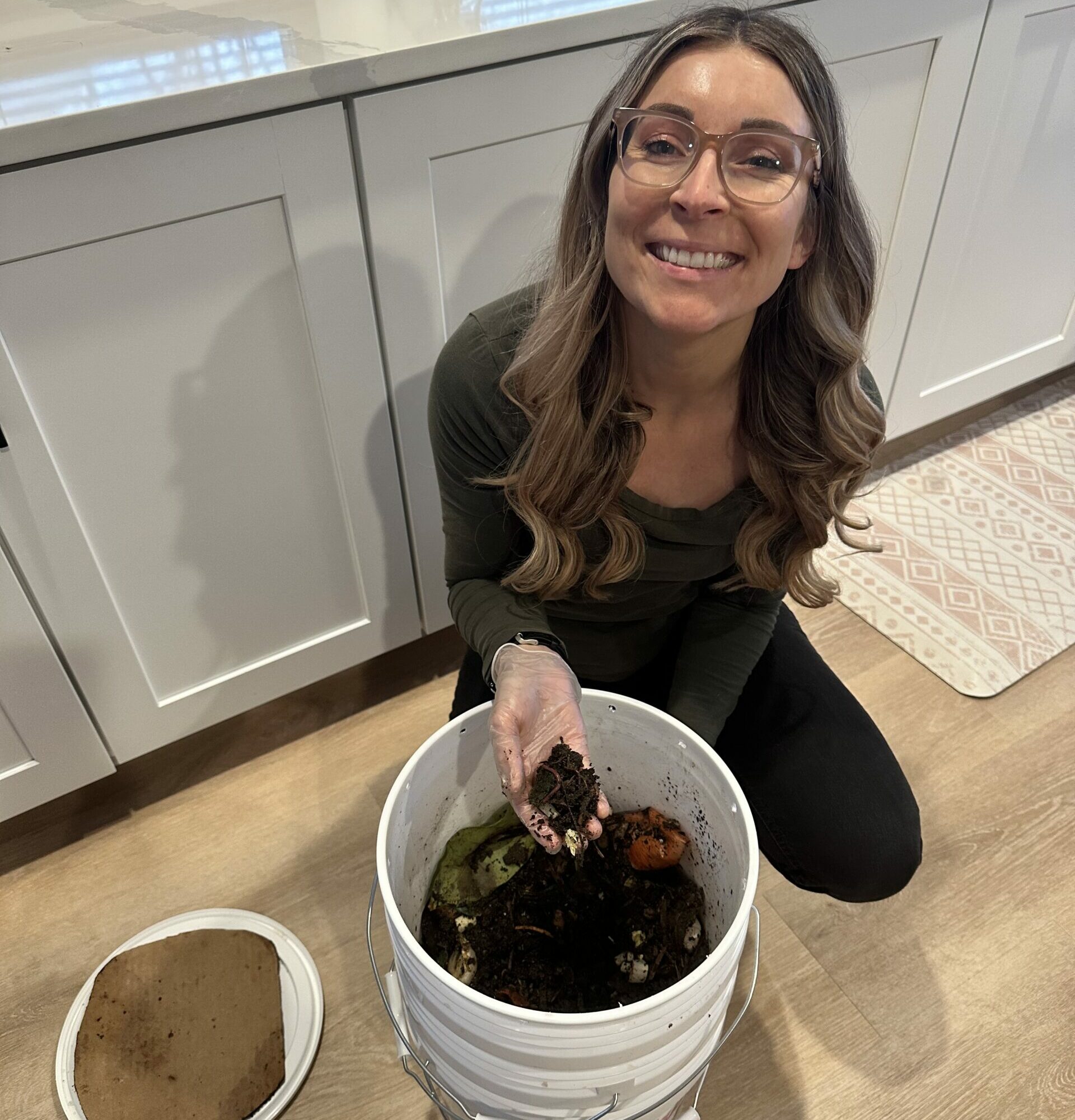

Tabitha made it a personal goal and part of her New Years Resolution in 2024 to reduce her overall waste — starting with compost. Growing up on a farm Tabitha always had access to compost pile but since moving into an apartment in town, her pile looks a little different …
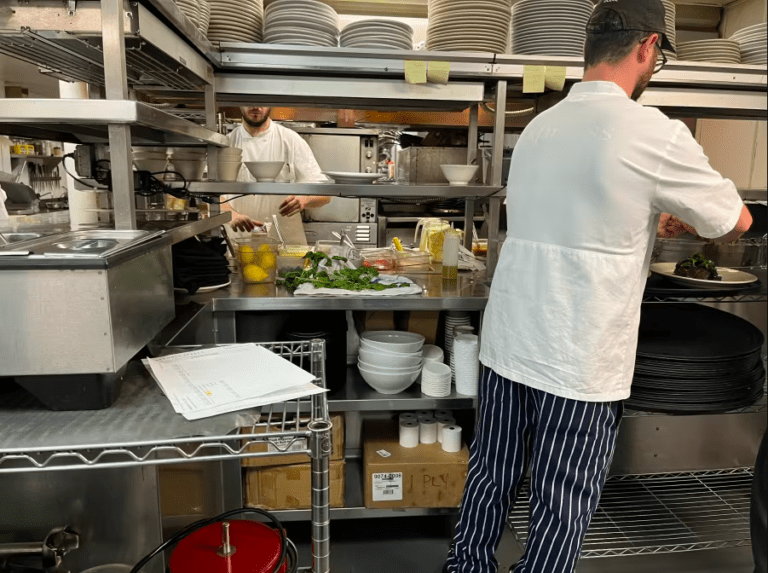

With 20 years under its belt, one of Traverse City’s favorite restaurants Trattoria Stella always finds new ways to keep their menu and their experience fresh. In 2021, Stella’s partnered with SEEDS to divert organic waste from pre-consumer vegetable scraps though the SEEDS Farm at Historic Barns Park!

